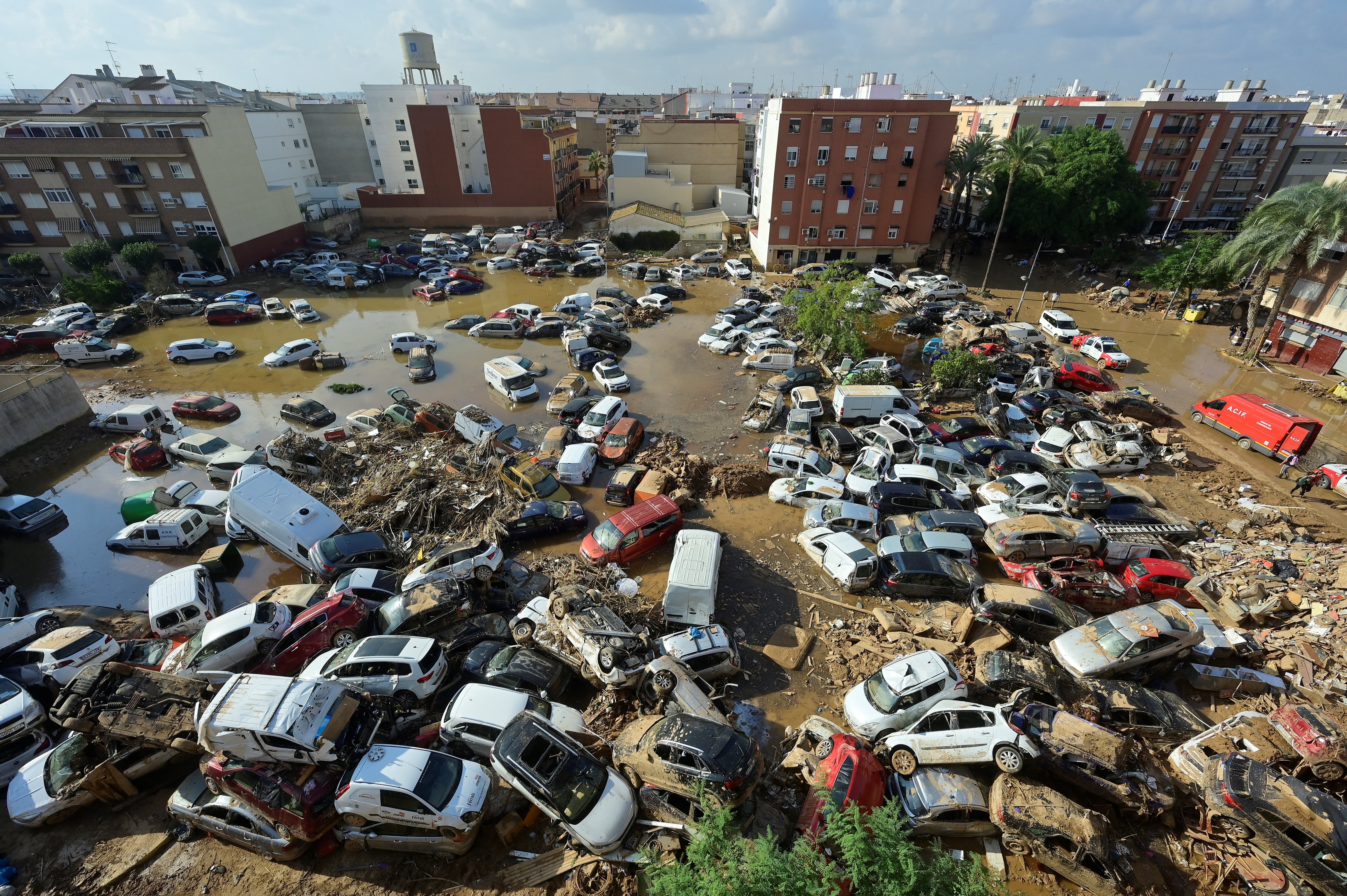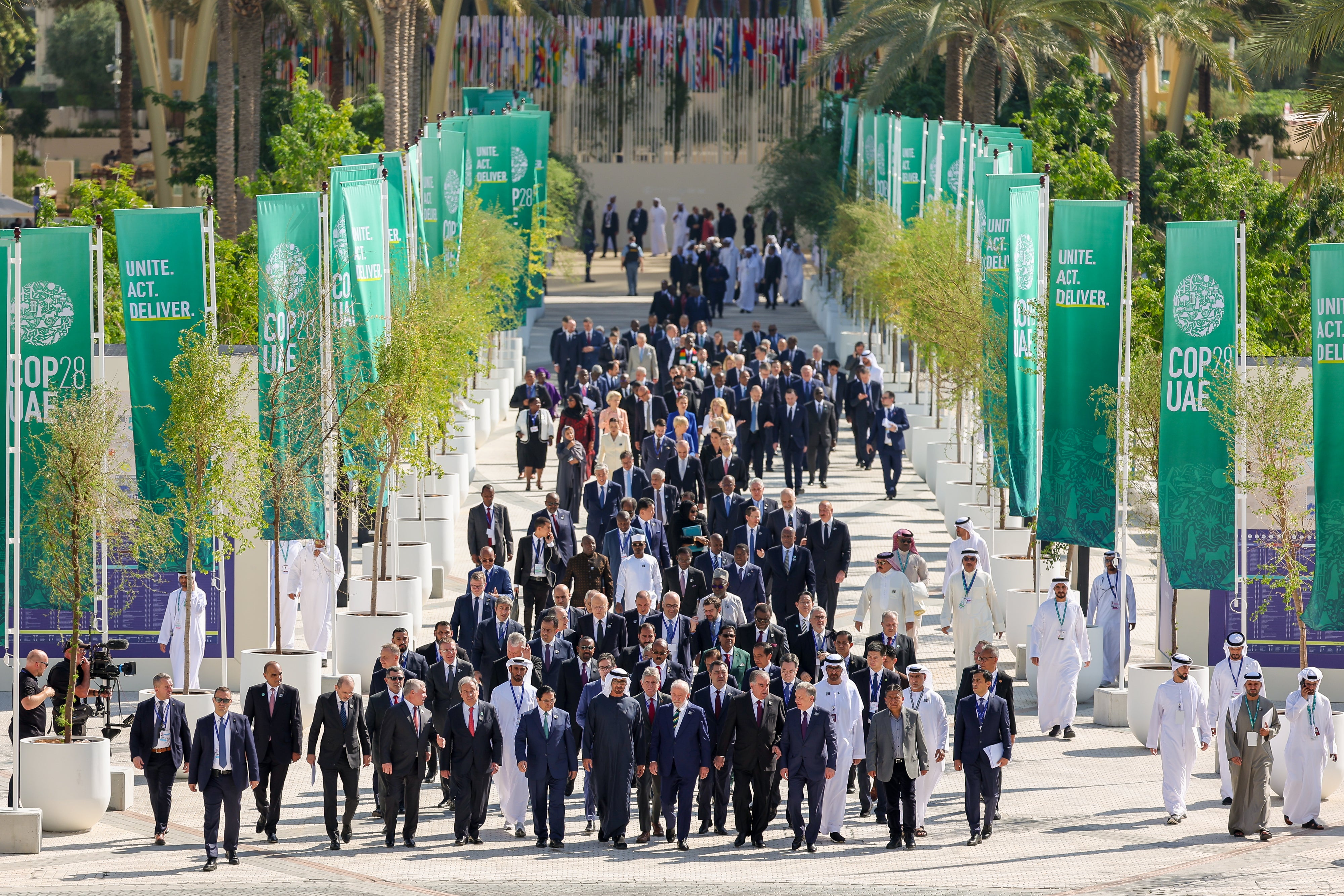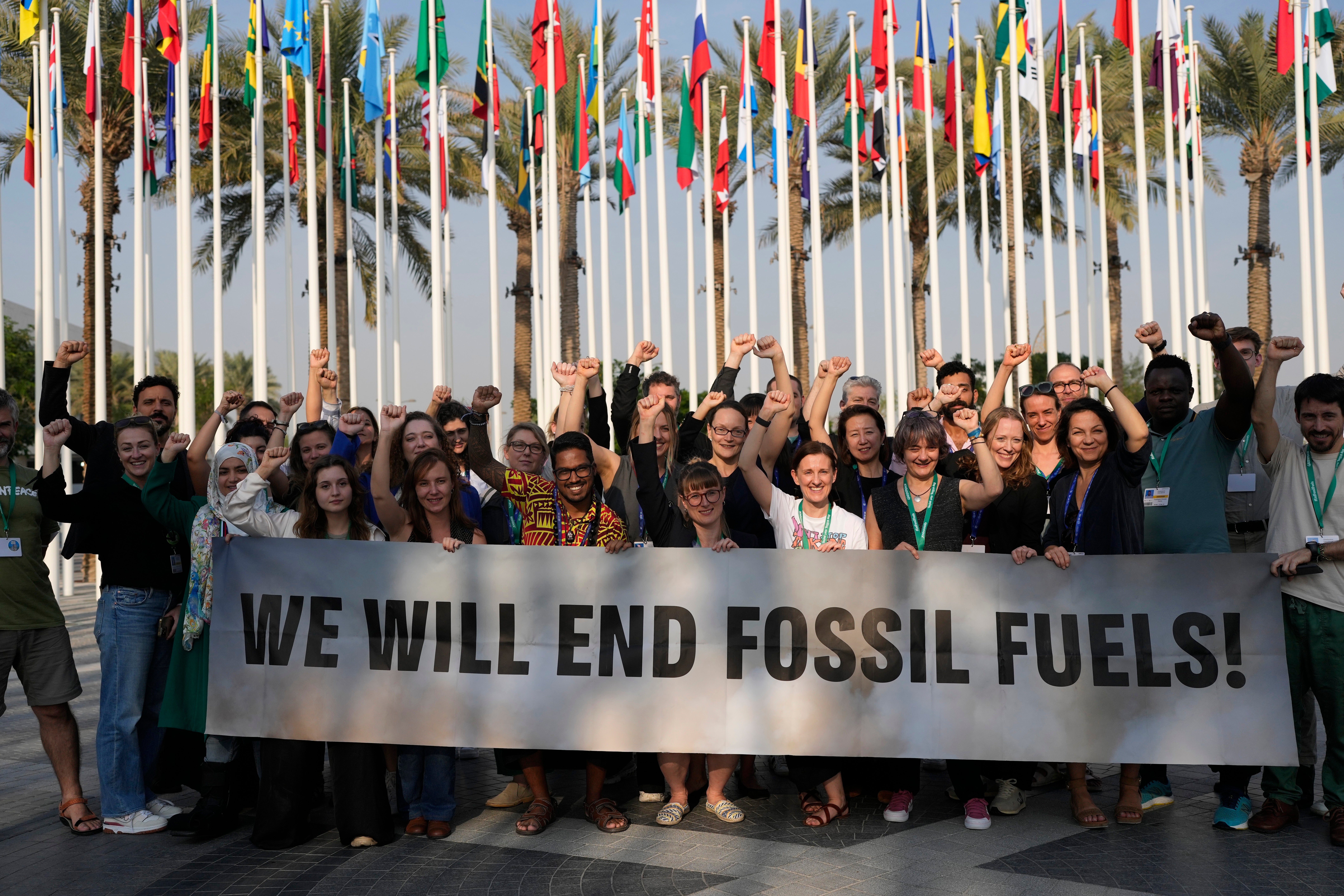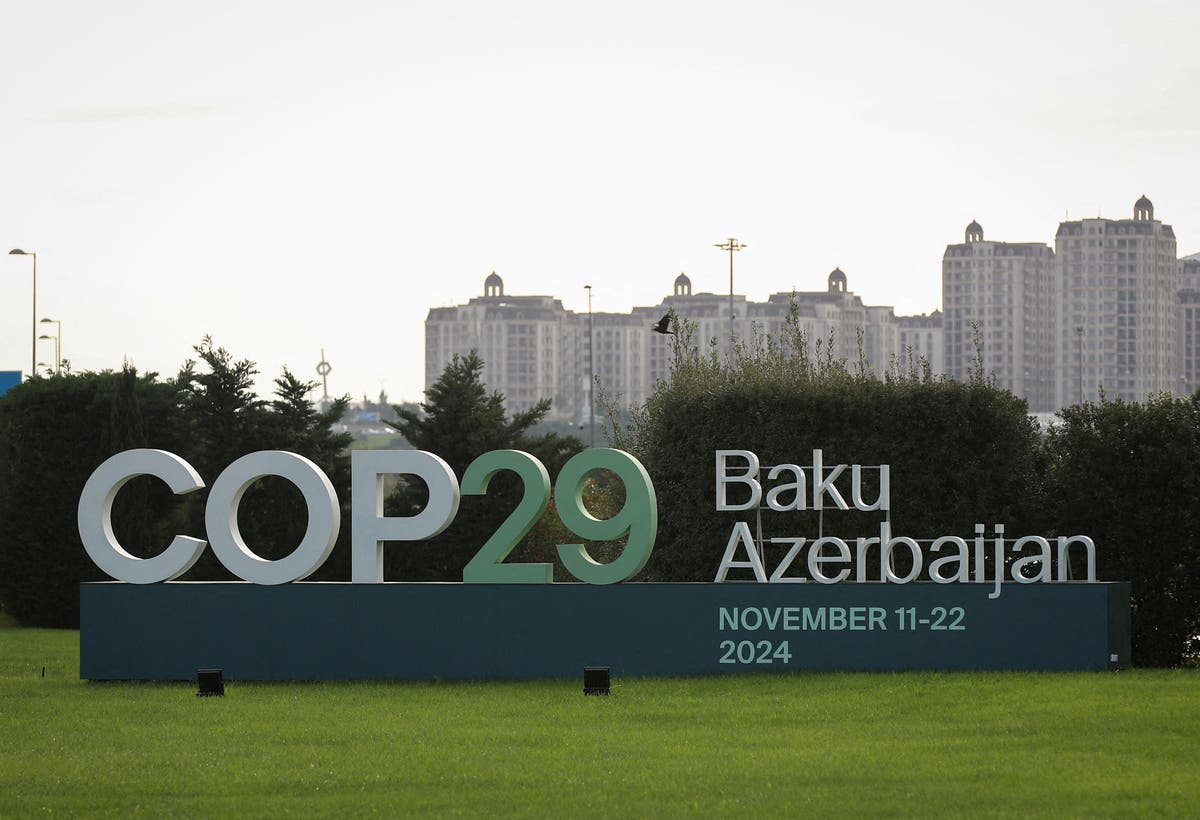National representatives are gathering in Azerbaijan for the start of crucial UN climate negotiations this week, although the summit has been hit by a number of setbacks before it even starts.
As Cop29 opens in Baku on Monday negotiators will begin the daunting task of securing a global commitment to provide vital funding for climate action.
The stakes were already high for this year’s summit, as finance is one of the most contentious issues in the annual climate negotiations. Rich countries have long been at odds with developing nations over the amount of funding needed, what it should be expected to cover – and who should be paying it.
Adding to the challenges facing this year’s summit are concerns about host nation Azerbaijan, with an undercover report alleging that the official overseeing the talks wanted to use the event to discuss fossil fuel deals. Plus, the re-election of Donald Trump as US president has cast an inevitable doubt over the role America will play in tackling the climate crisis.
Every year the climate summit produces a treaty agreed by all countries, and this year’s will focus on the finance needed to transition to clean energy and prepare citizens for a hotter world.
Other than money, the summit will discuss progress on the world’s transition away from using fossil fuels, something countries agreed to at last year’s summit. Despite a relatively strong deal at Cop28, however, fossil fuel investments and emissions have continued to grow.
And the summit will also see the establishment of new frameworks for international carbon markets, which allow countries to offset emissions by investing in green projects around the world.
Experts say this year’s summit is crucial because finance will form the basis for all future targets countries will be setting.

“You can’t have more ambition without finance, and if you don’t have finance, you will not commit to more ambition,” says Ani Dasgupta, chief of the World Resources Institute (WRI), a global research organisation.
Rich nations, who are responsible for the lion’s share of planet-heating emissions, are supposed to provide more money for climate action around the world. This commitment was a central part of the Paris Agreement, in which countries vowed to try and limit global warming to well below 2C, and ideally 1.5C, to prevent the most severe impacts of the climate crisis.
Yet the planet is in noticeably worse shape than even just 12 months ago, scientists say. Extreme weather disasters have intensified in every corner of the world, from floods in Spain to hurricanes devastating the Carribbean and the US and record wildfires. This year is now set to be the hottest on record, beating 2023.
There’s no shortage of reminders about the urgency needed from these climate talks, but finance has long been one of the thorniest issues for negotiators to tackle, with countries divided on nearly every aspect: how much money is needed, who should contribute, which types of funding should be included, what specific areas it should support, and over what timeframe.
The previous target of a $100bn fund was filled for the first time in 2022, two years later than intended. In the meantime the cost of climate disasters has been going up around the world.
“A successful climate finance goal must secure public finance at scale,” said Mariana Paoli, global advocacy lead at Christian Aid. “We’re not talking billions anymore. The new goal must be in the trillions, addressing everything from mitigation and adaptation to loss and damage.”
Experts had expected the US and EU to make a joint push at these talks for China and rich Gulf states to start paying into UN climate funds. As the biggest historic polluter and the world’s wealthiest nation, the US has often been looked to to lead by example in Cop summits, but the return to the White House of a known climate denier in Donald Trump has dented hopes of that being the case in Baku.
The US president-elect has infamously described the climate crisis as a “hoax”, and when pressed on his views in interviews tends to digress into talking about wanting “clean water” and “clean air” for Americans to drink and breathe. Mr Trump’s previous administration saw the US withdraw from the Paris Agreement and reverse environmental protections.

Activists, negotiators and scientists reacted in horror on Wednesday and Thursday as the US election results were announced. “It’s terrible,” said one climate activist who has been part of UN negotiations for decades. “It’s like a punch in the gut,” said another.
Neither president Joe Biden nor vice president Kamala Harris is travelling to attend the summit, although John Podesta, the senior adviser to the president for international climate policy, will lead a large American delegation.
There is a mix of concern and determination for what the summit can achieve without a strong US presence in the coming four years.
Elisabetta Cornago, a senior research fellow at the Centre for European Reform, said the presumed US absence will “demotivate developing countries from taking seriously the climate ambitions of the West”.
But not all are willing to let the US dictate the path forward. “The Paris Agreement was designed to survive political shifts,” says Fernanda Carvalho from WWF International. “The climate crisis doesn’t wait for politics. The stakes at Cop29 are too high to wait for any one nation.”
“Cop29 needs to recognise that the train is moving, whether Trump wants to jump on board or not,” said Romain Ioualalen from Oil Change International. “The energy transition is inevitable.”
With what has happened to the US, there will be more pressure on other wealthy nations to step up – prime minister Keir Starmer will be attending the talks, although longtime environmentalist King Charles III will not, and there is a general expectation that the number of world leaders present for the first days of the summit will not match the roll call from Cop28.
EU chief Ursula von der Leyen has decided to not attend the summit, the European commission said on Tuesday, because she will be focusing on her institutional duties as the commission is in a transition phase. France’s Emmanuel Macron will also be missing from the leaders summit. German chancellor Olaf Scholz, whose government has collapsed, has also cancelled plans to attend the summit.

Canada’s Justin Trudeau and South Africa’s Cyril Ramaphosa will also be sitting it out this year. Brazil’s president Luiz Inácio Lula da Silva, whose country will be the next host of the climate summit in 2025, cancelled his plans to attend due to a head injury.
In the absence of so many other key leaders, politicians and activists are urging Sir Keir to lead by example. “There’s never been a more critical time for the UK to take up the mantle of global climate leadership,” says Rosie Downes, head of campaigns at Friends of the Earth.
The Greens, in a statement, welcomed Sir Keir’s decision to attend the summit and asked to restore the UK’s “reputation on the world stage as a leader on cutting emissions”.
Normally the host nation would be expected to drive the summit’s attendants towards as ambitious a deal as possible, but confidence in Azerbaijan’s role has been shattered this week after an expose from Global Witness showed one of the officials associated with the climate summit promoting investment in the country’s fossil fuel sector.
In a recording, Elnur Soltanov, the Cop29 chief executive and Azerbaijan’s deputy minister of energy, was allegedly heard discussing “investment opportunities” in Azerbaijan’s state-owned oil and gas company with an individual posing as a potential investor, and seemed open to holding talks about such deals on the sidelines of Cop itself.
It is the second year in a row that such reports have emerged before the start of the summit. Last year, leaked documents revealed that host nation the UAE’s Cop28 team planned to discuss oil and gas deals with over a dozen visiting countries.
This is the third year in a row when the climate summit is taking place in a country whose economy is dominated by fossil fuel production, and Azerbaijan’s role as hosts was already under question. Azerbaijan president Ilham Aliyev recently announced plans to increase gas production, saying earlier this year that the country’s fossil fuel reserves were “a gift of the gods”.
Earlier this week, Hikmet Hajiyev, foreign affairs adviser to the president of Azerbaijan, wrote in an op-ed for EuroNews that the country is “not ashamed of its role in the [oil] industry”.

“Azerbaijan, whose share of global emissions stand at 0.01 per cent, is not ashamed of its role in industry,” he wrote before the recording was leaked, adding that the industry has funded the nation’s growth. “Nations should be judged not on their inheritance but by the direction they’re heading,” he said.
Analysts say it is likely that the presidency’s role in setting the direction for talks will be limited.
“The reality is that countries broadly are very determined to have an outcome at this Cop, and I don’t think that whether it’s Azerbaijani or UAE president is as consequential as maybe it would be at some Cops, because countries do understand the stakes in these negotiations,” said David Nemecek of E3G, an independent climate change think tank.

